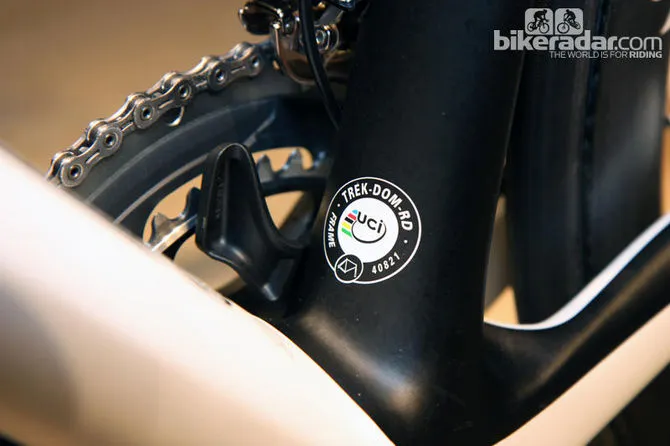The UCI's "outdated" rule requiring bikes used in races to weigh at least 6.8kg could be scrapped.
Instead, Dimitris Katsanis, drafted into the UCI as a technical consultant at the beginning of 2014, told BikeRadar that the notorious regulation could be replaced by an ISO standard that ensures frames and components meet minimum safety requirements instead.
The development could mean that designers are freed up to develop even lighter frames, as well as incorporate disc brake technology into bikes that are used in UCI-sanctioned races such as the Tour de France and the Giro d'Italia.
The 6.8kg (15.99lb) rule – 1.3.019 in the UCI rule book – was applied in 2000. It was implemented to ensure that bikes remained robust and safe to use. But as technology has moved on, frame makers have been able to produce light, stiff and safe production frames weighing as little as 670g. In the pro peloton, mechanics are often forced to add extra mass to ensure they don't fail at the race commissaires' scales.

Peter Sagan's Cannondale Super-Six Evo in 2012 had a 400g steel spindle in the crank to meet the 6.8kg requirement
Katsanis said: "At that time there was no intentional standard of safety for bicycles, so the regulator did a pretty good job to try and predict what it could be in a few years' time, so the 6.8kg rule at that time was very much a safety net; you don't go below that because you're going to make a bike that’s very fragile.
"Yes, today, this is a bit outdated and we are looking on how we can better do that."
On 20 May, an ISO committee made up of representatives from national standards agencies such as the UK's BSI and America's ANSI will vote on a raft of new standards and measurement criteria for 'cycles and major sub assemblies'. These new standards – scheduled for introduction over the summer – could underpin any planned regulatory changes at the UCI.
However Katsanis refused to put a time frame on when the 6.8kg rule could potentially be overhauled or replaced.
"Of course the implementation of this will take time for manufacturers to test their bikes and come up with a certificate that says this bike can actually pass the test," Katsanis said.
"It can be six months, 12 months, two years depending on how long the manufacturers take to respond."
It's not the first time the rule has been up for debate. In 2011, the UCI's then technical co-ordinator Julien Carron hinted that the rule could be replaced with a safety-based regulation similar to that suggested by Katsanis.
